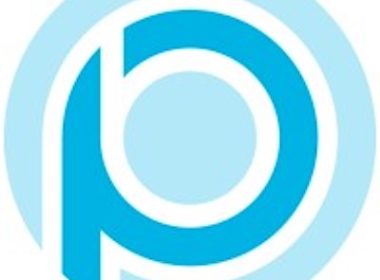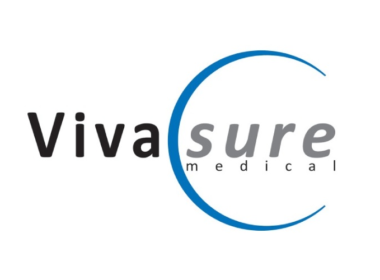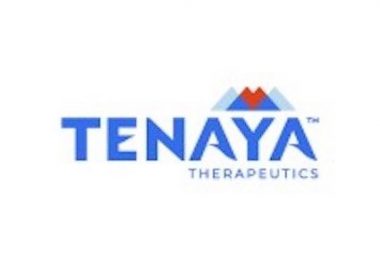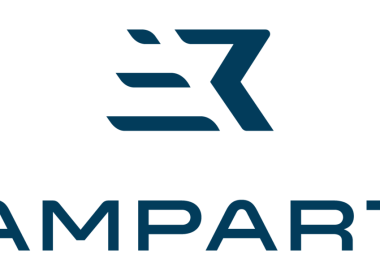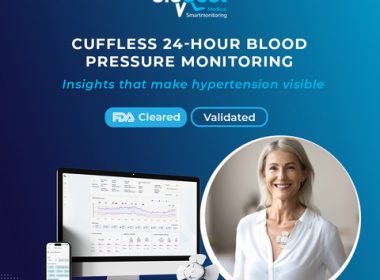€35 million Series C funding to accelerate the clinical and industrial development of FlowMaker® €48 million in grants from the IPCEI Tech4Cure program to structure the European Active Implantable Medical Devices (AIMD) sector BORDEAUX, France–(BUSINESS WIRE)–FineHeart, a clinical-stage medical technology company specializing in the development of innovative solutions for cardiology, announced today […]
Author: Ken Dropiewski
Pulse Biosciences, Inc. Appoints Maria Sainz to its Board of Directors
HAYWARD, Calif.–(BUSINESS WIRE)–Pulse Biosciences, Inc. (Nasdaq: PLSE), a company leveraging its novel nPulse™ technology using its proprietary Nanosecond Pulsed Field Ablation™ (nanosecond PFA or nsPFA™) energy, today announced the appointment of Maria Sainz to its Board of Directors effective as of January 9, 2026. “We are delighted to welcome Maria […]
Vivasure Medical Announces Acquisition by Haemonetics Corporation
GALWAY, Ireland–(BUSINESS WIRE)–Vivasure Medical®, a company pioneering novel fully absorbable technology for percutaneous vessel closure, today announced that the company has been acquired by Haemonetics Corporation (NYSE: HAE) in a transaction valued up to €185M (~$215M) on completion of certain milestones. Based in Galway, Ireland, Vivasure is focused on the […]
Major Medical Devices Secures Strategic Funding to Advance Novel AAA Repair Device to Market
NEW YORK, Jan. 9, 2026 /PRNewswire/ — Major Medical Devices, Inc. (http://www.majormedicaldevices.com) (MMD), an emerging innovator in vascular intervention technologies with a highly differentiated, potentially quick to market device in a $3 billion market, announces strategic funding…
Tenaya Therapeutics Announces 2026 Strategic Priorities and Anticipated Milestones
Aims to Build on Positive 2025 Interim TN-201 Results in First Half of 2026 with Longer-Term Follow-Up Data for Cohorts 1 and 2 from MyPEAK™-1 Trial of Adults with MYBPC3-Associated HCM Expects to Report One-Year Cohort 1 Data and Early Cohort 2 Data from RIDGE™-1 Study of TN-401 for PKP2-Associated ARVC in First Half of 2026 Plans to Pursue Alignment on Regulatory Pathways for Lead Gene Therapy Programs in 2026 Raised $60 Million in 4Q25 to Support Runway Through mid-2027 SOUTH SAN FRANCISCO, Calif., Jan. 09, 2026 (GLOBE NEWSWIRE) — Tenaya Therapeutics, Inc. (NASDAQ: TNYA), a clinical-stage biotechnology company with a mission to discover, develop and deliver potentially curative therapies that address the underlying causes of heart disease, today provided an update on its clinical development programs and outlined its strategic priorities for 2026. “2025 was a momentous year for Tenaya as we demonstrated early evidence of safety and potentially disease-modifying activity for our gene therapy programs for MYBPC3-associated hypertrophic cardiomyopathy and PKP2-associated arrhythmogenic cardiomyopathy—devastating inherited heart conditions with limited treatment options,” said Faraz Ali, Chief Executive Officer of Tenaya. “These encouraging results offer real hope to patients and families in need of transformative therapies. On the strength of these data, we successfully raised additional capital to advance both programs through key clinical milestones in 2026, including more mature data readouts from both programs. We remain steadfast in our mission to deliver potentially curative therapies for those living with serious genetic heart diseases.” Program Updates and Anticipated 2026 Milestones: TN-201 – Gene Therapy for MYBPC3-Associated Hypertrophic Cardiomyopathy (HCM) In the first half of 2026, Tenaya expects to share interim data for Cohort 2 patients dosed with 6E13 vg/kg of TN-201, as well as updates from Cohort 1 patients who received 3E13 vg/kg doses of TN-201 in the MyPEAK-1 Phase 1b/2 clinical trial for the potential treatment of HCM due to MYBPC3 mutations.In the second half of 2026, one-year Cohort 2 data and two-year Cohort 1 data from MyPEAK-1 are anticipated.Tenaya plans to pursue regulatory alignment on TN-201 pivotal studies over the course of 2026 with an update to be released in the second half of the year.In November 2025, Tenaya presented promising data from the MyPEAK-1 trial. The interim data reported included safety, biopsy and leading indicators of efficacy results for the three patients enrolled in Cohort 1 with follow-up ranging from Week 52-78, as well as initial safety data and biopsy and efficacy results for Cohort 2 patients as of the July 2025 data cut off. Key findings included: TN-201 was generally well tolerated at both dose levels. No dose-limiting toxicities were observed, and all patients have successfully tapered off immunosuppressive medicine.MyBP-C protein levels increased over time, with a substantial increase in protein levels observed commensurate with higher dose in Cohort 2.Multiple parameters associated with risk of complications and/or survival improved among a majority of patients with greater than 26 weeks of follow-up.These data were presented at the 2025 American Heart Association Annual Scientific Sessions and simultaneously published in Cardiovascular Research. To date, seven patients have been enrolled in the MyPEAK-1 trial. Following implementation of modest protocol amendments in alignment with U.S. Food and Drug Administration (FDA) input, Tenaya expects to resume enrollment in the 6E13 vg/kg dose expansion cohort to generate additional safety and efficacy data in 2026 TN-401 – Gene Therapy for PKP2-Associated Arrhythmogenic Right Ventricular Cardiomyopathy (ARVC) In the first quarter of 2026, the DSMB for the RIDGE-1 Phase 1b/2 clinical trial of TN-401 gene therapy for the potential treatment of adults with ARVC caused by mutations in the plakophilin-2 gene, (PKP2) is expected to convene. The DSMB will review all available safety data for the three patients dosed at 3E13 vg/kg (Cohort 1) and three patients dosed at 6E13 vg/kg (Cohort 2,) dose levels. Following DSMB review, Tenaya plans to continue to enroll patients in RIDGE-1 at one or both dose levels.Tenaya expects to present one-year data for Cohort 1 and initial Cohort 2 data in the first half of 2026. Additional Cohort 2 data is anticipated in the second half of 2026.Tenaya plans to pursue regulatory alignment on TN-401 pivotal studies in the second half of 2026 and to share an update by year-end, as available.In December 2025, Tenaya presented positive initial Cohort 1 data in the ongoing RIDGE-1 clinical trial. The data reported included safety, biopsy and arrhythmia results from Cohort 1 as of the October 2025 data cut off, with follow-up ranging from 20-40 weeks post-dose. Key findings included: TN-401 was well tolerated at the 3E13 vg/kg dose, and no dose-limiting toxicities were observed. Adverse events (AEs) were generally mild, asymptomatic and manageable and deemed unrelated to TN-401 treatment.Biopsies demonstrated robust transduction and expression in all patients within first eight weeks.Clinically meaningful improvements in electrical instability were observed in the first two patients with greater than six months follow-up after TN-401 dosing.Enrollment and dosing of Cohort 2 is complete with no new serious AEs related to TN-401 reported in the cohort to date. In July 2025, the RIDGE-1 trial DSMB reviewed all available data and endorsed dose escalation to the 6E13 vg/kg level and expanding enrollment of Cohort 1, per protocol. Cash Position and Updated Guidance Tenaya ended the third quarter of 2025 with $56.3 million in cash, cash equivalents and investments in marketable securities. With the additional proceeds of $60 million from the December 2025 public offering (prior to deducting underwriting discounts and commissions and offering expenses), the company expects that such resources will be sufficient to fund planned operations through mid-2027. About TN-201 Gene Therapy and the MyPEAK-1 Phase 1b/2 Clinical TrialTN-201 is an adeno-associated virus serotype 9 (AAV9)-based gene therapy designed address the underlying cause of myosin binding protein C3 (MYBPC3)-associated hypertrophic cardiomyopathy (HCM) by delivering a working MYBPC3 gene to heart muscle cells via a single intravenous infusion and thereby increasing insufficient MyBP-C protein levels with the aim of halting or even reversing disease after a single dose. The U.S. Food and Drug Administration has granted TN-201 Fast Track, Orphan Drug and Rare Pediatric Drug Designations. TN-201 has also received orphan medicinal product designation from the European Commission. The ongoing MyPEAK-1 Phase 1b/2 clinical trial (Clinicaltrials.gov ID: NCT05836259) is a multi-center, open-label, dose-escalating (3E13 vg/kg and 6E13 vg/kg) study of symptomatic adults (up to 24) who have been diagnosed with MYBPC3-associated HCM. MyPEAK-1 is designed to assess the safety, tolerability and clinical efficacy of a one-time intravenous infusion of TN-201 gene replacement therapy. MyPEAK-1 has tested doses of 3E13 vg/kg and 6E13 vg/kg in two cohorts of three patients each. In July 2025, Tenaya reported that the trial’s independent Data Safety Monitoring Board (DSMB) concluded that TN-201 had an acceptable safety profile to allow enrollment of expansion cohorts at either the 3E13 vg/kg (Cohort 1) or 6E13 vg/kg (Cohort 2) dose levels. To learn more about gene therapy for HCM and participation in the MyPEAK-1 study, please visit HCMStudies.com. About TN-401 Gene Therapy and the RIDGE-1 Phase 1b/2 Clinical TrialTN-401 is an investigational AAV9-based gene therapy being developed for the treatment of arrhythmogenic right ventricular cardiomyopathy (ARVC, also known as arrhythmogenic cardiomyopathy or ACM) due to mutations in the Plakophilin-2 (PKP2) gene. AAV9 was selected as the vector for delivery of Tenaya’s PKP2 gene therapy based on its extensive clinical and commercial safety record and demonstrated ability to target heart muscle cells. TN-401 has received Orphan Drug and Fast Track Designations from the U.S. Food and Drug Administration. Tenaya’s development of TN-401 is supported in part by a grant from the California Institute of Regenerative Medicines (CIRM). The RIDGE-1 Phase 1b/2 clinical trial of TN-401 in patients with PKP2-associated ARVC is a multi-center, open-label, dose escalation study being conducted in the U.S. and UK. RIDGE-1 is intended to assess the safety, tolerability and preliminary clinical efficacy of a one-time intravenous infusion of TN-401. RIDGE-1 will seek to enroll up to fifteen adults who have been diagnosed with PKP2-associated ARVC, have an ICD and are at increased risk for arrhythmias as determined by premature ventricular count (PVC) during screening. In July 2025, Tenaya announced that the RIDGE-1 trial’s independent Data Safety Monitoring Board (DSMB) endorsed dose escalation per protocol following a review of available data from three patients dosed at 3E13 vg/kg (Cohort 1). Enrollment in the 6E13 vg/kg dose cohort is complete and additional enrollment in the RIDGE-1 will be considered following a review of all available safety data by the trial’s DSMB. To learn more about gene therapy for ARVC and the RIDGE-1 clinical trial, please visit ARVCstudies.com or ClinicalTrials.gov (NCT06228924). About Tenaya TherapeuticsTenaya Therapeutics is a clinical-stage biotechnology company committed to a bold mission: to discover, develop and deliver potentially curative therapies that address the underlying drivers of heart disease. Tenaya’s pipeline includes clinical-stage candidates TN-201, a gene therapy for MYBPC3-associated hypertrophic cardiomyopathy (HCM) and TN-401, a gene therapy for PKP2-associated arrhythmogenic right ventricular cardiomyopathy (ARVC). Tenaya has employed a suite of integrated internal capabilities, including modality agnostic target validation, capsid engineering and manufacturing, to generate a portfolio of novel medicines based on genetic insights, including TN-301, a clinical-stage small molecule HDAC6 inhibitor for the potential treatment of heart failure and related cardio/muscular disease, and multiple early-stage programs in preclinical development aimed at the treatment of both rare genetic disorders and more prevalent heart conditions. For more information, visit www.tenayatherapeutics.com. Forward Looking Statements This press release contains forward-looking statements as that term is defined in Section 27A of the Securities Act of 1933 and Section 21E of the Securities Exchange Act of 1934. Statements in this press release that are not purely historical are forward-looking statements. Words such as “aims,” “expects,” “plans,” “potentially,” “anticipated,” “will,” and similar expressions are intended to identify forward-looking statements. Such forward-looking statements include, among other things, the planned timing to report additional data from MyPEAK-1 and RIDGE-1 and pursue regulatory alignment for the TN-201 and TN-401 programs; the sufficiency of Tenaya’s cash runway to support operations through mid-2027; the clinical, therapeutic and commercial potential of, and expectations regarding the safety and efficacy of TN-201 and TN-401; Tenaya’s expectations regarding enrollment in MyPEAK-1; expectations regarding the upcoming DSMB review of RIDGE-1 safety data and plans to continue to enroll patients in one or both dose cohorts; statements regarding the continued development of TN-201 and TN-201 and TN-401 clinical outcomes, which may materially change as more patient data become available; and statements made by Tenaya’s Chief Executive Officer. The forward-looking statements contained herein are based upon Tenaya’s current expectations and involve assumptions that may never materialize or may prove to be incorrect. These forward-looking statements are neither promises nor guarantees and are subject to a variety of risks and uncertainties, including but not limited to: availability of MyPEAK-1 and RIDGE-1 data at the referenced time; the timing and progress of MyPEAK-1 and RIDGE-1; the potential failure of TN-201 and/or TN-401 to demonstrate safety and/or efficacy in clinical testing; the potential for any MyPEAK-1 or RIDGE-1 clinical trial results to differ from preclinical, interim, preliminary or expected results; the potential for the U.S. Food and Drug Administration and/or other regulatory agencies to conclude at any time that TN-201 and/or TN-401 may not have an appropriate risk/benefit profile; Tenaya’s ability to enroll and maintain patients in clinical trials, including MyPEAK-1 and RIDGE-1; risks associated with the process of discovering, developing and commercializing drugs that are safe and effective for use as human therapeutics and operating as an early stage company; Tenaya’s continuing compliance with applicable legal and regulatory requirements; Tenaya’s ability to raise any additional funding it will need to continue to pursue its product development plans; Tenaya’s reliance on third parties; Tenaya’s manufacturing, commercialization and marketing capabilities and strategy; the loss of key scientific or management personnel; competition in the industry in which Tenaya operates; Tenaya’s ability to obtain and maintain intellectual property protection for its product candidates; general economic and market conditions; and other risks. Information regarding the foregoing and additional risks may be found in the section titled “Risk Factors” in Tenaya’s Quarterly Report on Form 10-Q for the fiscal quarter ended September 30, 2025, and other documents that Tenaya files from time to time with the Securities and Exchange Commission. These forward-looking statements are made as of the date of this press release, and Tenaya assumes no obligation to update or revise any forward-looking statements, whether as a result of new information, future events or otherwise, except as required by law. Tenaya ContactsMichelle CorralVP, Corporate Communications and Investor RelationsIR@tenayathera.com InvestorsAnne-Marie FieldsPrecision AQ annemarie.fields@precisionaq.com MediaWendy RyanTen Bridge Communicationswendy@tenbridgecommunications.com
NewAmsterdam Pharma Highlights 2025 Achievements and Outlines 2026 Strategic Priorities
— EMA approval decision for obicetrapib and obicetrapib/ezetimibe fixed dose combo expected in 2H26 — — Phase 3 PREVAIL CVOT overall event rate tracking in line with observed rate in BROADWAY — — First patient enrolled in RUBENS Phase 3 trial of obicetrapib and obicetrapib/ezetimibe fixed dose combo (FDC) in patients with metabolic syndrome — — Year-end cash, cash equivalents and marketable securities balance of approximately $729 million (unaudited) — NAARDEN, the Netherlands and MIAMI, Jan. 09, 2026 (GLOBE NEWSWIRE) — NewAmsterdam Pharma Company N.V. (Nasdaq: NAMS or “NewAmsterdam” or the “Company”), a late-stage, clinical biopharmaceutical company developing oral, non-statin medicines for patients at risk of cardiovascular disease (“CVD”) with elevated low-density lipoprotein cholesterol (“LDL-C”), for whom existing therapies are not sufficiently effective or well-tolerated, today provided an update on the obicetrapib clinical development program and outlined its strategic priorities for 2026. NewAmsterdam is developing obicetrapib, an oral, low-dose, once-daily, and highly selective cholesteryl ester transfer protein (“CETP”) inhibitor, alone or as a fixed-dose combination with ezetimibe, as preferred LDL-C lowering therapies to be used as an adjunct to statin therapy for patients at risk of cardiovascular disease with elevated LDL-C, for whom existing therapies are not sufficiently effective or well tolerated. “2025 was an important year for NewAmsterdam, as we continued to further the regulatory process for obicetrapib and the fixed-dose combo. In partnership with Menarini, the company is preparing for a potential commercial launch in Europe, contingent upon an EMA approval decision that is expected in 2H26. In PREVAIL, we are encouraged by the rate of overall MACE events (blinded) in this cardiovascular outcomes trial (“CVOT”), which suggest that the initial 12 month rate is tracking in line with the overall rate observed in the Phase 3 BROADWAY trial,” said Michael Davidson, M.D., Chief Executive Officer of NewAmsterdam. “We are also excited to announce the RUBENS trial enrolled its first few patients in December and could allow for additional label enhancements, if approved, for patients with Type 2 Diabetes and/or Metabolic Syndrome that are not at their LDL-C risk-based goals. We expect topline results from the trial by the end of 2026.” “As we look to 2026, we remain committed to advancing our broader clinical development strategy, which includes three Phase 3 trials, PREVAIL, REMBRANDT, and RUBENS. In addition and based on the positive data from our Alzheimer’s disease (“AD’”) biomarker analysis from the BROADWAY trial, we are planning to start our first dedicated Alzheimer’s trial in 2026. This study could further demonstrate the potential of obicetrapib to modify key biomarkers and clinical pathology of AD. Lastly, we continue to make progress towards building out a portfolio of obicetrapib based combinations, conducting studies that could guide the development of proprietary fixed-dosed combinations in the future,” continued Dr. Davidson. Key 2025 Achievements: In June and July 2025, NewAmsterdam announced positive data from the prespecified AD biomarker analysis in the BROADWAY clinical trial and presented at the 2025 Alzheimer’s Association International Conference (“AAIC”). The pre-specified analysis was conducted to assess the effect of obicetrapib on plasma biomarkers of AD in both the full analysis set and in patients carrying the apolipoprotein E4 (“ApoE4”) gene, based on phenotypic analysis. NewAmsterdam observed statistically significant reductions in p-tau217, a key biomarker of AD pathology, in both the full analysis set (p
RAMPART Launches SECURE Clinical Program to Advance Clinical Evidence for Next Generation Radiation Protection
BIRMINGHAM, Ala. — January 8, 2025 — Rampart, a Birmingham, Alabama–based medical device company redefining interventional radiation safety, today announced the launch of the SECURE Clinical Program, Studies Evaluating Clinical Utility of Radiation mitigation Equipment, a first-of-its-kind, multi-specialty clinical initiative designed to further advance the scientific evidence for next-generation radiation […]
Biobeat Secures $50 Million Series B Financing to Advance Commercialization of its Patch-worn, Cuff-less 24-hour Ambulatory Blood Pressure Monitor
PETAH TIKVA, Israel & BOCA RATON, Fla.–(BUSINESS WIRE)–Biobeat Technologies, Ltd., developer of the first FDA-cleared, 24-hour ambulatory blood pressure monitoring (ABPM) system that is a patch-worn, cuff-less solution for diagnosis and treatment of hypertension, announced today the closing of a $50 million Series B equity financing. The time has arrived […]
Conavi Medical Corp. Announces Filing of Amended and Restated Final Prospectus
NOT FOR DISTRIBUTION TO U.S. NEWS WIRE SERVICES OR FOR DISSEMINATION IN THE UNITED STATES A&R FINAL PROSPECTUS WILL BE ACCESSIBLE ON SEDAR+ TORONTO, Jan. 07, 2026 (GLOBE NEWSWIRE) — Conavi Medical Corp. (TSXV: CNVI) (“Conavi” or the “Company”), a commercial stage medical device company focused on designing, manufacturing, and marketing imaging technologies to guide common minimally invasive cardiovascular procedures, is pleased to provide an update in respect of its previously announced public offering (the “Offering”) of common shares of the Company (“Common Shares”) and/or pre-funded common share purchase warrants of the Company in lieu of Common Shares (“Pre-Funded Warrants” and, together with the Common Shares, the “Securities”). The Offering is being conducted on a commercially reasonable efforts agency basis for the issuance of a minimum of 26,666,667 Securities and a maximum of 33,333,333 Securities at a price of $0.45 per Common Share or $0.44999 per Pre-Funded Warrant, for gross proceeds of between $12,000,000 and $15,000,000. Each Pre-Funded Warrant issued in lieu of a Common Share at the election of any purchaser entitles the holder thereof to acquire one Common Share at an exercise price of $0.00001 per Common Share. The Pre-Funded Warrants will not expire and may be exercised on a “net” or “cashless” basis. The Company intends to use the net proceeds from the Offering to obtain US FDA 510(k) clearance of the next generation Novasight Hybrid system, as well as complete a targeted market release in the United States. The Company also intends to use the net proceeds for working capital and other general corporate purposes. The Offering is expected to be completed pursuant to the terms and conditions of an amended & restated agency agreement entered into between the Company and Bloom Burton Securities Inc. (the “Agent”). The Company filed an amended and restated final short form prospectus (the “A&R Final Prospectus”) on January 7, 2026, with the securities regulatory authorities in the provinces of Alberta, British Columbia, and Ontario, which amends and restates the final short form prospectus filed on December 18, 2025. There will not be any sale of the Securities until a receipt for the A&R Final Prospectus has been issued. The Offering may be completed in one or more tranches and is expected to close initially on or about January 13, 2026, or such other date as may be mutually agreed to by the Company and the Agent (the “Closing Date”). The Offering is subject to the satisfaction of customary closing conditions, including the receipt of all necessary regulatory and stock exchange approvals, including approval of the TSX Venture Exchange (“TSXV”). The Company will pay to the Agent a cash fee equal to 6.5% of the gross proceeds raised under the Offering, and grant the Agent compensation options equal to 6.5% of the aggregate number of Securities issued under the Offering (the “Compensation Options”), provided however, the Agent will receive a reduced cash commission of 3.25% and no Compensation Options in respect of Securities sold to certain purchasers on a president’s list to be agreed to between the Company and the Agent. Each Compensation Option shall entitle the holder to buy one Common Share at the same price per Common Share as under the Offering. The Compensation Options shall be exercisable until that date which is 24 months following the Closing Date. In addition, the Securities are anticipated to be offered by way of private placement in certain jurisdictions outside of Canada pursuant to and in compliance with applicable securities laws. This press release is not an offer to sell or the solicitation of an offer to buy the Securities in any jurisdiction in which such offer, solicitation, or sale would be unlawful prior to qualification or registration under the securities laws of such jurisdiction. The Securities being offered have not been, nor will they be, registered under the United States Securities Act of 1933, as amended (the “U.S. Securities Act”), and such Securities may not be offered or sold to, or for the account or benefit of, persons in the United States or U.S. persons except pursuant to an exemption from the registration requirements under the U.S. Securities Act and applicable U.S. state securities laws. “United States” and “U.S. persons” have the meanings ascribed to them in Regulation S under the U.S. Securities Act. Access to the A&R Final Prospectus and any amendments to such documents will be provided in accordance with securities legislation relating to procedures for providing access to a short form prospectus and any amendment thereto. The A&R Final Prospectus (when filed) will be accessible on SEDAR+ at www.sedarplus.ca. Alternatively, an electronic or paper copy of the A&R Final Prospectus (when filed), as well as any amendment to such documents, may be obtained without charge from the Agent by email at ECM@bloomburton.com, by telephone at 416-640-7585 or by providing the contact with an email address or address, as applicable. The A&R Final Prospectus (when filed) contains important, detailed information about the Company and the Offering. Prospective investors should read the A&R Final Prospectus (when filed) before making an investment decision. About Conavi Medical Conavi Medical is focused on designing, manufacturing, and marketing imaging technologies to guide common minimally invasive cardiovascular procedures. Its patented Novasight Hybrid™ System is the first to combine intravascular ultrasound (IVUS) and optical coherence tomography (OCT) into a single device, enabling simultaneous and co-registered imaging of coronary arteries. The first-generation Novasight Hybrid™ System has 510(k) regulatory clearance in the U.S., Canada, China, and Japan. For more information, visit http://www.conavi.com. CONTACT:Christina Cameron IR@conavi.com Notice on forward-looking statements: This press release includes forward-looking information or forward-looking statements within the meaning of applicable securities laws regarding Conavi and its business, which may include, but are not limited to, statements with respect to the anticipated terms and jurisdictions of the Offering; securities offered thereunder; the timing of the Offering, including the anticipated Closing Date and timing for the A&R Final Prospectus; use of proceeds from the Offering; fees anticipated to be paid to the Agent and terms thereof; and regulatory and exchange approvals, including the listing of the Common Shares offered pursuant to the Offering on the TSXV. All statements that are, or information which is, not historical facts, including without limitation, statements regarding future estimates, plans, programs, forecasts, projections, objectives, assumptions, expectations or beliefs of future performance, are “forward-looking information or statements”. Often but not always, forward-looking information or statements can be identified by the use of words such as “shall”, “intends”, “anticipate”, “believe”, “plan”, “expect”, “intend”, “estimate” “anticipate” or any variations (including negative variations) of such words and phrases, or state that certain actions, events or results “may”, “might”, “can”, “could”, “would” or “will” be taken, occur, lead to, result in, or, be achieved. Such statements are based on the current expectations and views of future events of the management of the Company. They are based on assumptions and subject to risks and uncertainties. Although management believes that the assumptions underlying these statements are reasonable, they may prove to be incorrect. The forward-looking events and circumstances discussed in this release, may not occur and could differ materially as a result of known and unknown risk factors and uncertainties affecting the Company, including, without limitation, those listed in the “Risk Factors” section of the A&R Final Prospectus (which, when filed, will be available on the Company’s profile at www.sedarplus.ca). Although Conavi has attempted to identify important factors that could cause actual actions, events or results to differ materially from those described in forward-looking statements, there may be other factors that cause actions, events or results to differ from those anticipated, estimated or intended. Accordingly, readers should not place undue reliance on any forward-looking statements or information. No forward-looking statement can be guaranteed. Except as required by applicable securities laws, forward-looking statements speak only as of the date on which they are made and Conavi does not undertake any obligation to publicly update or revise any forward-looking statement, whether as a result of new information, future events, or otherwise. No regulatory authority has approved or disapproved the content of this press release. Neither the TSX Venture Exchange nor its Regulatory Services Provider (as that term is defined in the policies of the TSX Venture Exchange) accepts responsibility for the adequacy or accuracy of this press release.
Cardio Diagnostics, Aimil Ltd. and Dr. Lal PathLabs Limited Partner to Launch the PrecisionCHD™ Test in India
Agreement expands Cardio Diagnostics’ global footprint and supports improved detection and management of coronary heart disease in India. CHICAGO–(BUSINESS WIRE)–Cardio Diagnostics Holdings, Inc. (NASDAQ: CDIO), a leader in epigenetics and AI-driven Precision Cardiovascular Medicine, Aimil Ltd., a company at the forefront of the instrumentation industry in India since 1932, introducing innovative, best-in-class […]


